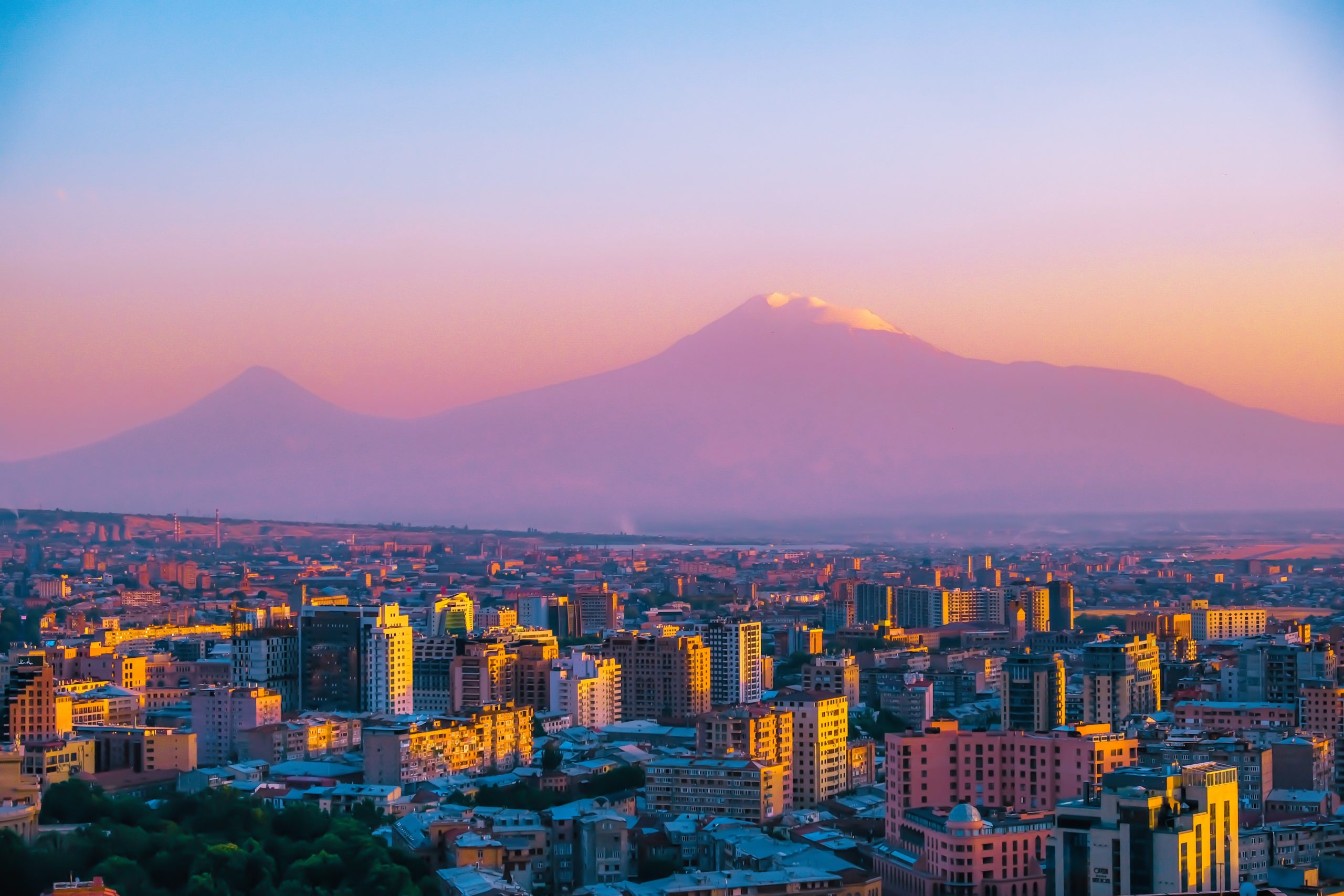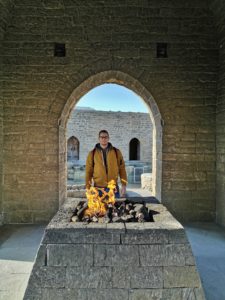With all the different events going on in the world today, an obvious thing to consider before you travel is the safety of the country you will be in.
HOW SAFE IS THE CAUCASUS RIGHT NOW?
From our years of experience, we have found that it is highly unlikely that you will be put in any danger in the Caucasus region of Georgia, Armenia, and Azerbaijan. My wife and I have lived in the Caucasus since 2015 with our four young children, and are happy to call it home (both the Russian/North Caucasus and the South Caucasus in Tbilisi, Georgia). We have traveled to and have friends in many of the “dangerous” parts of the region: Dagestan, Chechnya, Ingushetia, etc., so we have a lot of personal experience to share from. It is a beautiful region with a growing tourism infrastructure and is definitely worth visiting!
Here are some aspects of traveling in the Caucasus region that you may want to be aware of as you make travel plans in 2024 and beyond!
PROVEN TOURISM TRACK RECORD:
Georgia, Armenia, and Azerbaijan continue to climb in popularity of places to visit by international travelers, promoted by various well-known travel publications. Most recently, all three Caucasus countries made the Top 10 of Wanderlust Magazine’s 2023 Reader Travel Award “Most Desirable Emerging Country” category, quite an impressive feat to take 30% of the world’s spots on that coveted list! Armenia & Georgia were both included in Forbes’ Best Places To Travel in 2023 list, and Azerbaijan has its own dedicated travel page on National Geographic’s site. The incredible local cuisine & wine hasn’t flown under the radar either, with features of Georgian wine in Conde Nast Traveler articles. Or you can read about Armenian dolma or Azerbaijani plov on numerous travel food blogs. For the more adventurous traveler, I bet you didn’t know that four of Europe’s highest 10 mountain peaks are in Georgia, three of which are higher than Mont Blanc in the French Alps, the EU’s highest peak!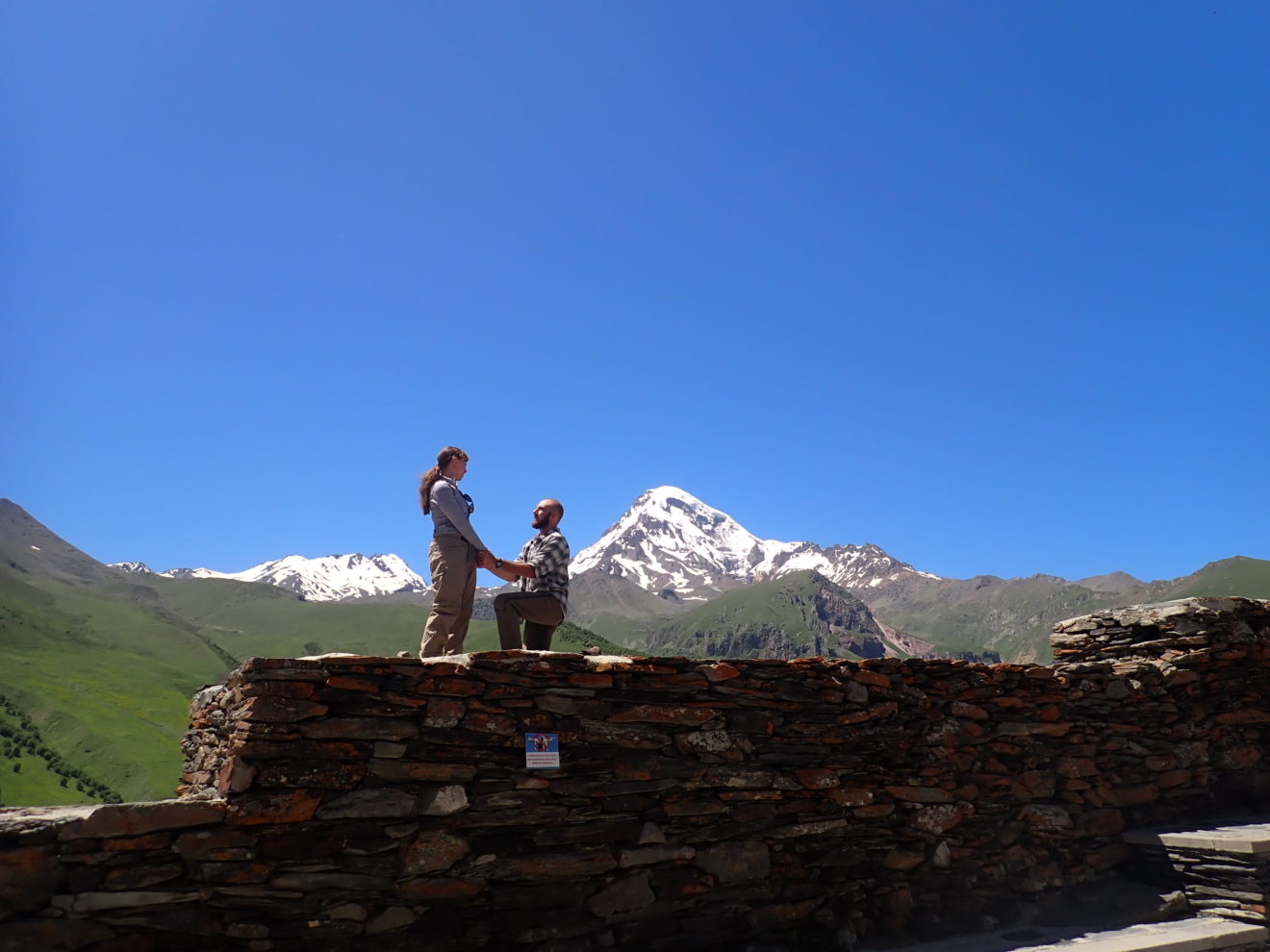
The three Caucasus capital cities of Baku (Azerbaijan), Tbilisi (Georgia), and Yerevan (Armenia) all have their distinct draws; Tbilisi was featured in National Geographic’s 2022 “100 Cities, 5000 Ideas” guidebook around the world, as well as placing #8 on Wanderlust Magazine’s 2023 Reader Travel Award “Most Desirable City in Europe” list. Religious tourism is a big draw with Armenia & Georgia being the first two countries in the world to have adopted Christianity as their official state religions. Gudauri Ski Resort in Georgia is developing a reputation as one of Europe’s more affordable ski destinations with lots of challenging runs. Batumi in western Georgia is rapidly earning a great reputation as a top regional Black Sea beach destination. Of course, we could go on and on about more reasons to visit this region 🙂
TRAVEL ADVISORIES:
Checking your government’s travel advisory is a good place to start when getting a feel for how advisable it is to travel to a foreign country. Because we are Americans, we typically check what the US State Department recommends. It’s advisable to check your home country’s travel advisory and can be helpful to compare & contrast with multiple other countries’ travel advisories to get a holistic picture of the current situation.
Currently, the US State Dept. gives a Level 1 rating out of 4 (i.e. the best possible safety rating for international travel) for travel to Georgia. Armenia & Azerbaijan both have a Level 2 rating (i.e. “Exercise Increased Caution”), primarily in reference to the Nagorno-Karabakh conflict around the Armenia/Azerbaijan border (see below for more info). To read for yourself, here are the travel advisory pages for Georgia, Armenia, and Azerbaijan.
PAST (AND PRESENT) CONFLICTS:
There are several areas of the Caucasus that we would advise caution & discernment in your movements due to past & present conflicts:
- Armenia — In the SE part of the country around the border with Azerbaijan. This is near the Nagorno-Karabakh region in Azerbaijan that had a continual 30+ year conflict between the two countries until it suddenly ended in Fall 2023. The Lachin Corridor is no longer viable to attempt to travel to Nagorno-Karabakh from mainland Armenia. The primary town with historic destinations in SE Armenia is Goris and this continues to be a safe area to visit and explore.
- Azerbaijan — Similar to the above, we at the moment do not advise travel to the Nagorno-Karabakh district, surrounding regions, or around the Armenia border while in (western) Azerbaijan. The end of the conflict is still fresh (there are still active mines in the surrounding areas), and it would not be prudent to visit this part of the Caucasus at this time. This being said, the majority of prominent sites & destinations in Azerbaijan are quite far from this western corner of the country, so you can feel quite safe exploring the rest of the country.
- Georgia — Georgia has two regions marked by conflict with Russia: Abkhazia and South Ossetia. There is zero enry into these territories by foreign citizens from the Georgian borders. Keep a healthy distance from these territories with these republics as there have been arbitrary apprehensions and/or fatal incidents with Georgian citizens around each border by Russian border control. For Abkhazia, this mainly applies around the town of Zugdidi (on the way to Svaneti) and the Black Sea Beach town of Anaklia. For South Ossetia, this applies in the wider Gori area (1 hr west of Tbilisi), and at the end of Truso Valley beyond Zakagori.
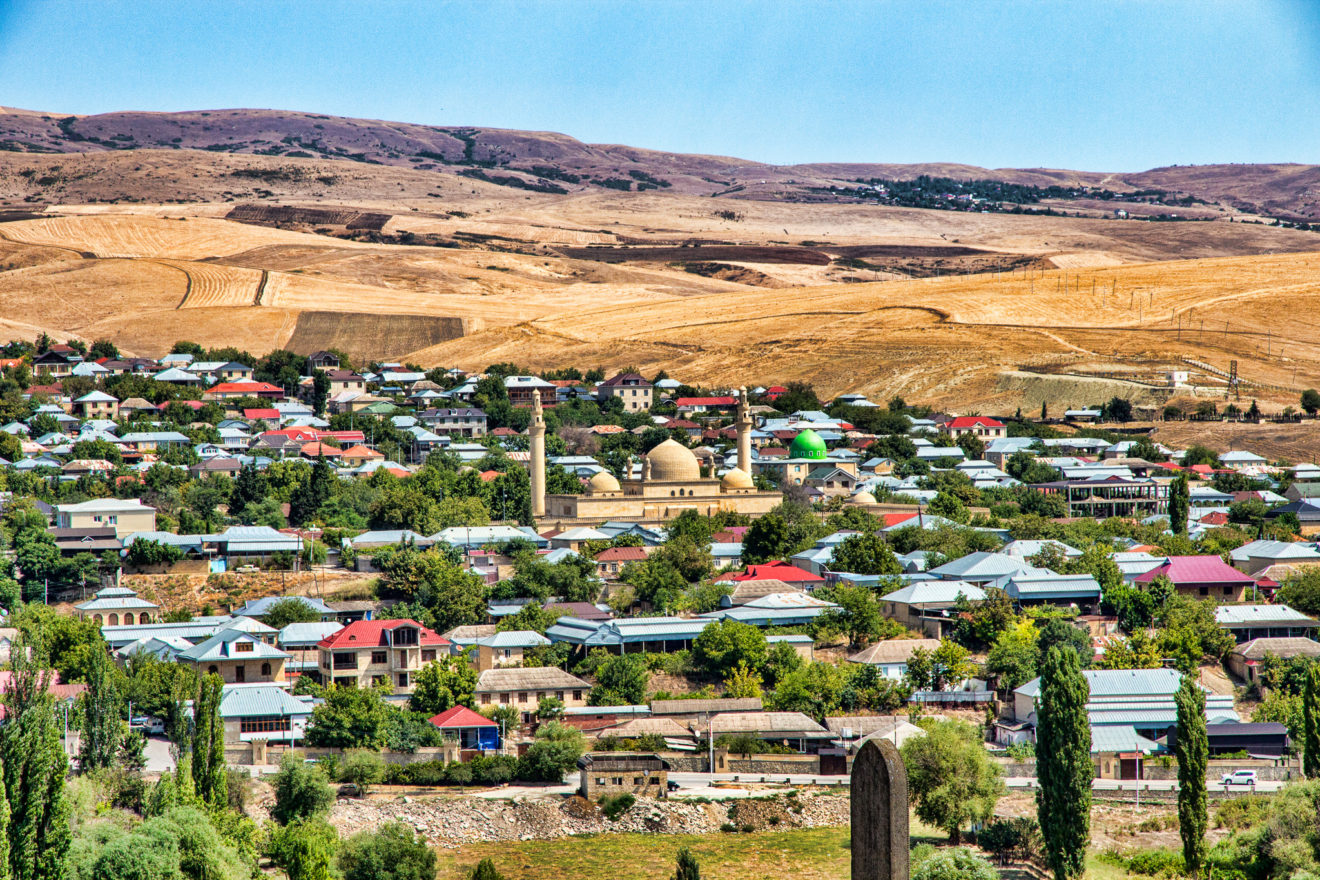
INTERNATIONAL BORDERS:
Armenia borders several countries with strict border policies/control: Azerbaijan, Iran, and Turkey. Be vigilant if visiting any tourist sites near these borders and be sure to keep a healthy distance from accidentally venturing over an international border. That being said, Armenia has 3 primary land border crossings with Georgia which are daily crossed without a glitch by hundreds of local and international travelers. There presently is no open land border between Armenia & Azerbaijan.
Azerbaijan – This far eastern Caucasus country borders Iran to the south, Armenia & Georgia to the west, and Russia to the north. Whether on the Caspian Sea coast or in the Caucasus Mountains, be sure to know where you are located at all times and not accidentally venture onto a foreign country’s territory. Azerbaijan’s mountain peaks (esp. Mt. Shahdag) share borders w/ Russia, and climbers have been apprehended before by Russian border police for accidentally straying across the border during their trek. If you are attempting to climb certain mountain peaks such as Shahdag, you need a border permit with you from the Azerbaijan Ministry of Tourism, applied for one month in advance. ***At the time of this blog’s writing (January 2024), Azerbaijan’s land borders with Georgia and its other neighbors are NOT open. This means that you are UNABLE to cross by vehicle/land from Georgia into Azerbaijan, and your only option is to fly from Tbilisi to Baku. That being said, it IS possible to exit Azerbaijan by land border to Georgia.
There is a land border between Russia & Georgia about 15 minutes from the mountain town of Stepantsminda (near Mt. Kazbek), but there is a clear Georgian border post, so no chance of accidentally crossing the border there. Georgia is replete with incredible trekking & mountaineering opportunities in the Svaneti, Kazbegi, and Tusheti regions, just use vigilance in knowing your location and not accidentally wandering across an international border with Russia!
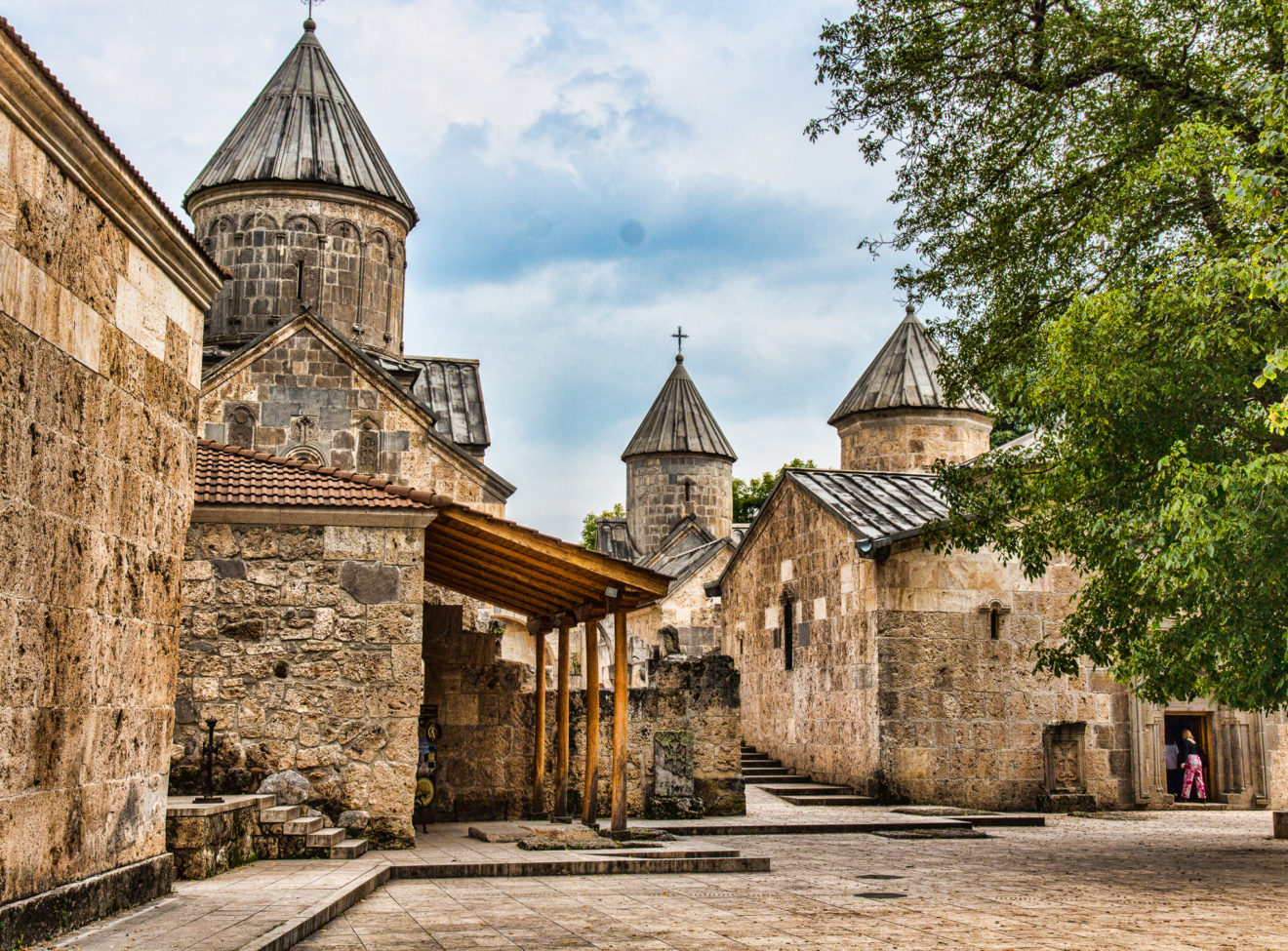 Photo Credit: Gail South
Photo Credit: Gail SouthCASTLES, FORTRESSES, MONASTERIES, & MORE:
One of the fantastic parts of touring the Caucasus is the plethora of ancient structures you can find across each country: monasteries, castle ruins, fortresses, cave cities, churches, mosques, etc. With this, though, comes the need to be extra careful getting up to these sites and back down to safer ground. Many of these sites are on the sides of mountains or hills, require climbing up slippery rock “steps”, and generally necessitate physical strength & balance. Always visit with at least 1 other person and don’t take unnecessary risks to get that “perfect” picture.
Traveling in the region between June and September also means you’ll be doing this in 35+ Celsius temperatures (i.e. 90+ Fahrenheit), so you’ll be exerting more energy, sweating more, and thirsty. Always carry plenty of water with you at this time of year to stay replenished. These precautions were summed up well from one of our guests in Summer 2023:
“We are older adults and didn’t understand how debilitating the combination of very high temperatures and steep, uneven walking paths would be in August. Take lots of water!” (Gail, from Google Reviews)
WHERE IT ISN’T SAFE:
If you are concerned about safety during your trip to the Caucasus, here are some practical tips for you:
-Avoid being in dark, isolated areas in cities, including back alleys. Baku, Tbilisi, and Yerevan are big cities so it shouldn’t come as a surprise to take precautions of where you find yourself and at what time of day, or night.
-Exercise reasonable discretion with the number of valuables you carry or jewelry you wear. As in any big city (especially in the capital cities), there might be pickpockets on the lookout for easy targets, especially in crowded or touristy areas (Rustaveli Ave. in downtown Tbilisi, for example).
-Try to stay with a travel companion! Our customized tours have personal drivers and English-speaking guides that will be with you in case you need anything.
-If you are a woman, use extra caution in being alone, especially when trekking in remote places and/or being out in cities late at night.
-Avoid wearing headphones while jogging so that you remain aware of your surroundings.
Two of Georgia’s most beautiful mountain regions are Svaneti and Tusheti, and their beauty is unrivaled in many parts of the world. But make sure to have an experienced, safe driver taking you to both locations, as the road is long, windy, and unpaved in multiple sections. This is especially true to Tusheti, as this road is only open June-September every year.
You may find yourself invited to a dinner table to eat and drink with a festive group of men in the Caucasus. In these settings, lifelong memories can be made, but you must be firm on how much alcohol (if at all) you will drink in groups like this. Caucasus men are infamous for their seemingly unending ability to give toasts and drink wine or vodka. We advise against joining groups like this without at least one other companion and having firm boundaries of how much (if at all) you will drink, no matter how much you are pressured, or your hosts insist that you drink.
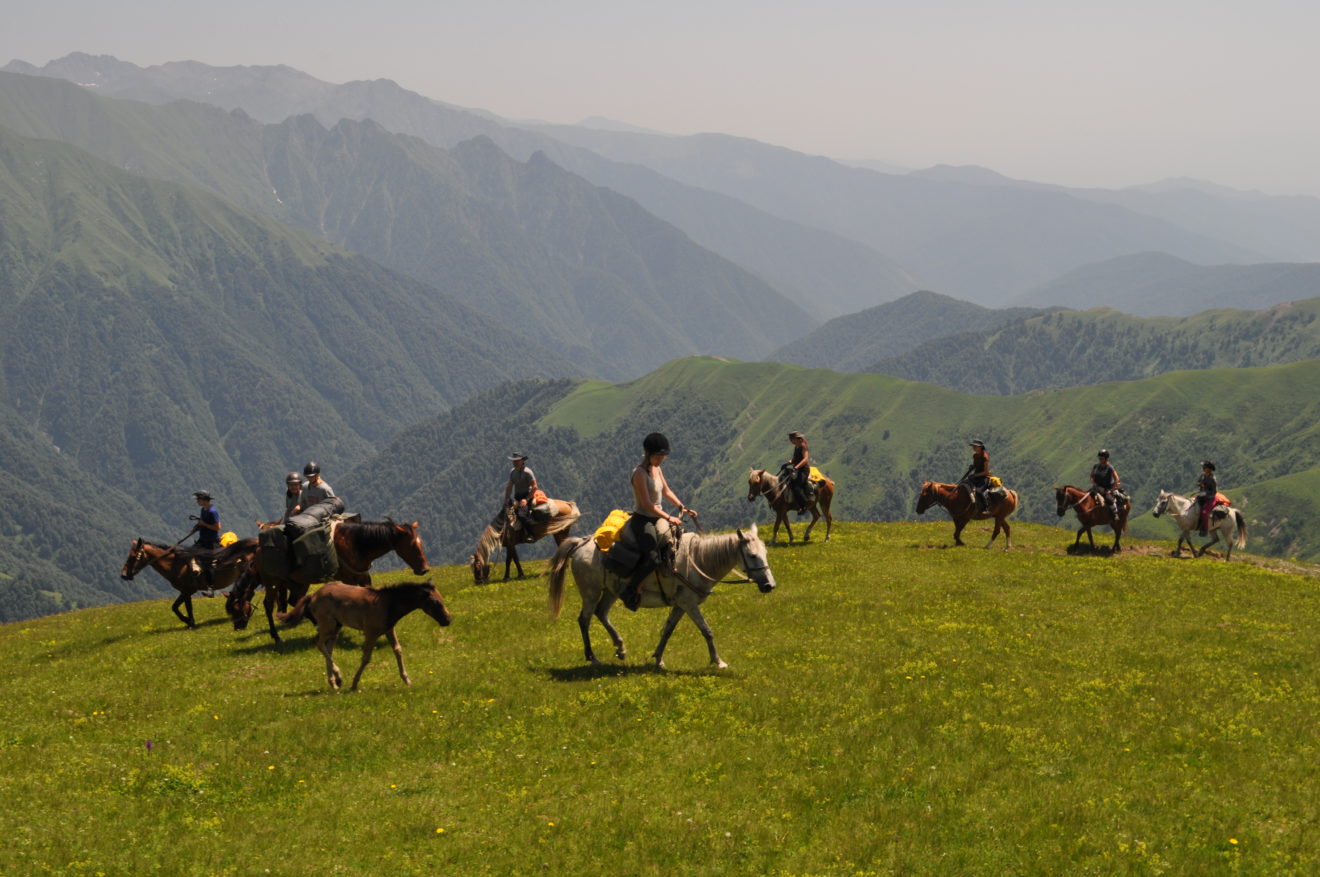
WHAT TO EXPECT FROM OUR PARTNERS:
Tourism is a big part of each Caucasus country’s economy, and local people are very welcoming to those who are visiting. Caucasus hospitality towards guests on an individual level often wows international visitors.
For those partaking in our mountaineering expeditions, be assured that we only work with experienced, local guides who have the appropriate professional qualifications, either GMGA or IFMGA certification. Our drivers and cultural guides are English-speakers and will handle themselves professionally and safely on the roads, no matter where you travel with them.
We also have American representatives living in the Caucasus. They constantly monitor the safety of Armenia, Georgia, and Azerbaijan as a whole for all our travelers.
Below is a review from one of our guests from Nov. 2023, attesting to the safety of their experience in the region:
“We explored Armenia and Georgia with experienced, friendly and knowledgeable guides. Our drivers were safe and we packed in so many sites during our holiday. (The Caucasus Quest) team communicated with us every step of the way and we felt completely supported and secure.” -Sarah Farris (from our Google Reviews page)
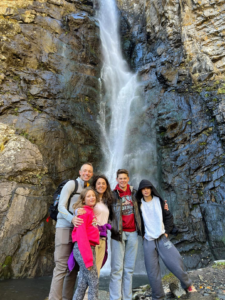
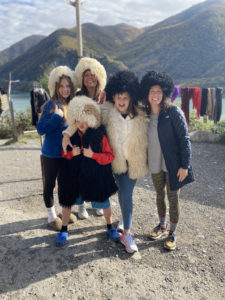


Photo Credits: Kevin Abernathy, Anna Berry, Sarah Ferris, Gail South
WORTH A VISIT:
With all of these considerations in mind, we can say that the Caucasus is a safe and worthwhile region for tourists to visit, whether you choose Armenia, Azerbaijan, Georgia, or all three! Everyone who has visited us in the past has been deeply impressed with the incredible hospitality that they have experienced when they were here.
Have questions about the safety of the Caucasus? Feel free to contact us or check out our customer testimonials.

